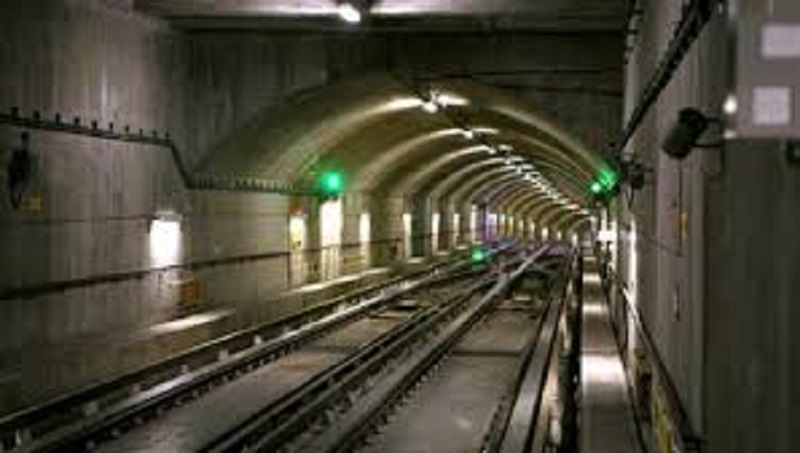The construction of the first ever underground metro rail on Airport-Kamalapur route is underway with relocation of utility services aiming to complete by 2028.
“Efforts underway to accomplish construction of the Mass Rapid Transit Line-1 (MRT Line-1) in time to reduce traffic congestion and improve environment friendly commuter service in the capital,” Managing Director of Dhaka Mass Transit Company Limited (DMTCL) Md Abdur Rouf told BSS here today.
He said the 31.241-km-long MRT Line-1 between the Hazrat Shahjalal International Airport and Kamalapur Railway Station will have two parts – the Airport Route and the Purbachal Route.
The managing director said DMTCL, as the implementing agency of the project, authority has engaged various contactors for construction of the MRT Line-1.
According to the MRT Line-1 project details, the 19.872-km-long underground Airport Route will have 12 underground stations and the 11.369-km-long elevated Purbachal Route will have nine stations including underground ones.
Among the nine stations of the Purbachal Route, seven will be elevated and two (Nodda and Natun Bazar) stations will be underground for coordination with the Airport-Kamalapur route.
The project details said the construction work of the line was inaugurated on February 2, 2023, while the feasibility study was conducted in 2016-2018.
Project Director Md Abul Kashem Bhuiyan said the entire MRT Line-1 project is being implemented in 12 packages at a cost of Tk. 53,977 crore while the Japan International Cooperation Agency (JICA) is providing Tk. 39,450 crore as project assistance and the Bangladesh government is giving Tk. 14,527 crore.
The project details said after completion, the metro rail will carry approximately 70,000 people from the airport to Kamalapur and vice versa every hour.
Experts said 13.66 lakh people can move by this metro rail per day which is about 2.83 times higher than that of the ongoing MRT Line-6 project.
The government is moving forward with the mega plan to build a 140-kilometer metro rail network in Dhaka and its adjacent areas by 2030 to reduce traffic congestion.
Once the planned network consisting of six lines comes into reality, 50 lakh people will be able to use the facilities as the lines will cover 129 kilometres area of the city – about 68km elevated and about 61km underground – having more than 100 stations.

